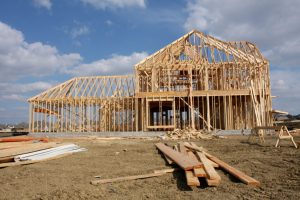
We all know that house prices are at an all-time high and demand far exceeds supply. Economics 101 says that when demand is greater than supply, it’s opportunity time for sellers to produce more of what people want. So why aren’t more developers undertaking housing developments?
It’s an important question because the debate about our critically inadequate housing supply has thrown up a lot of ‘siloed’ views. Some think it’s just about a policy decision, or it’s a lack of land supply. Or it’s land prices, it’s construction costs and on and on the litany goes…. But the single target view is invariably wrong. The crisis of supply isn’t about one cause. There are multiple causes and they are all related.
Let’s consider some common misconceptions about developers
Development is a path to easy riches – well, isn’t it?
No, actually! Development is risky and complex. Sure, property cycles can mean that one development with perfect timing makes significant profit but there are many other developments which barely break even and the media is replete with stories of failed developments and unlucky developers.
Developers only focus on profit and they put profit before people – well, don’t they?
Not so fast! Developers will only be able to make a profit from development if they build something that people are prepared to pay for today. It’s demand from purchasers that drives what is built. Get that wrong, no profit.
Making a profit in a housing development is a bad thing – surely?
Developers, just like any commercial business, set out to make a profit. They are after all putting their own time, money and skill into building something. The process they are involved in exposes them to significant risks – many outside of their control. In this context it seems reasonable that they get something in return, otherwise, why would they do it? Would you?
Development is just about just constructing houses – isn’t it that simple?
Not quite. It takes a lot of skill, and a wide range of factors come into play in producing a successful developer. The skills probably begin with the commercial smarts to visualise an opportunity where it doesn’t currently exist. Then, they include being able to bring everything together – understanding demand, developing a concept, leading a strong team of professional experts, ensuring that the financials work, masterplanning and consenting, funding deals and the marketing and sales strategy before you get to the construction phase.
So what are some of the challenges?
It is a long term play – particularly for the larger developments.
• Evan Davies of Todd Properties recently commented in an article that the 162 ha Long Bay development in Auckland is estimated to be complete in 2022. This was originally launched in 2001 by the previous landowner.
• Hobsonville Land Company – a subsidiary of Housing New Zealand – are responsible for the 4,500 home masterplanned community at Hobsonville. It estimates that it will be complete in a decade. The land for this project was purchased in 2002.
Funding can be a challenge for the more complex, long term, large scale housing projects.
• It can be a capital-intensive process and the challenge is to secure lines of credit over a long-term time frame.
• Where do you go for the funding? We saw the collapse of a number of finance companies after the Global Financial crisis. Finance companies were the main source of second-tier development funding. The banks even now aren’t totally filling that gap – which provides another stiff challenge in getting would-be development projects off the ground.
Then there’s the risk …
• Risk includes – construction cost increases, property cycle changes, funding exposure, potential for delays from everything from consenting and obtaining sufficient sales through to weather and confronting unexpected issues such as contamination. All of these factors have the ability to impact the potential feasibility of a development project.
• Putting development projects together are a little like a rubix cube. Everything needs to come into line. A change in one area of the development process can have an impact on many other parts.
• It is not surprising, therefore, that some companies are risk averse – reluctant to grow quickly and expose themselves, in the process, to plenty of risk.
So the 64 million dollar (more or less!) question is – how do we not only maintain the development momentum but actually increase it?
As I’ve mentioned, scale, the cost of borrowing, risk, and uncertainty are some of the reasons which impact on development projects.
We have to find answers for these complex problems. They are issues so big that focusing on them for long can make your brain hurt! Where we assuredly won’t find answers is by going looking for someone to blame – and, while we’re about it, let’s also ditch the fantasy that there is a simple silver bullet solution. This is a complex issue – and we need to solve it collectively, all the time focused on taking action and keeping momentum going.
It is about partnership – all the players – government, council, iwi, developers, the community housing sector and the finance community single-mindedly focused on how we get more homes built, and how we make more of them affordable.
I launched a comprehensive solution on my website thehomepage.nz in October 2016. It involved 4 key steps:
1) Defining the vision by identifying where Auckland wants to go and what success looks like.
2) Implementing an approach called Collective Impact to ensure the ideas can be implemented. This is a practice used globally and New Zealand to solve complex problems – ensuring that everyone is working together towards the same goals and measuring the same thing.
3) Creating a housing framework to make sense of the problem and where all the pieces of the housing jigsaw fit.
4) A resolute and unified action plan which ensures we are clear and transparent about where we are going and how we can get there together.
To ensure we can get more development happening by the development community there are many levers which need to be pulled. Some of these could include:
• Getting everyone involved in the housing sector focused on achieving the same goals and working together to remove current blockages.
• Assist all groups understanding not just their part of the jigsaw, but everyone else’s and where they fit in.
• Agreeing and implementing initiatives to assist in mitigating risk. This may include up-front pre-commitments from local or central government, obtaining payments for projects on local or central government land when houses are complete or an underwrite on some projects
• Develop clear robust partnership models between all the parties including – public, private and non-for profit sector so that there can be much improved efficiencies at putting development opportunities together
• Clarity and certainty on projects from the public sector – such as providing a five year pipeline coming through. This would assist in enabling development momentum to continue when the market turns.
• Working on how to increase the capacity and capability within the development and construction industries
• Considering alternative funding options to enable developments to get off the ground
• Ensuring there is much greater alignment between land supply, infrastructure provision and development opportunities
• Looking at ways to reduce the time involved for development projects including speeding up the consenting and development processes
• Ensure we take Aucklanders on the journey so that new housing supply is seen as a positive contribution and something that strengthens communities
• Work on home ownership and assisted ownership programs to ensure there is the ability for Aucklanders to purchase new housing stock off the plans.
This is about not just talking, though talking together in a focused way is going to be a good start. But it’s fundamentally about action and producing, collaboratively, a long term fix for Auckland’s housing crisis. Like it or not, we’re all in this one together. We either hang together or hang separately. I’m sure of my preference!




